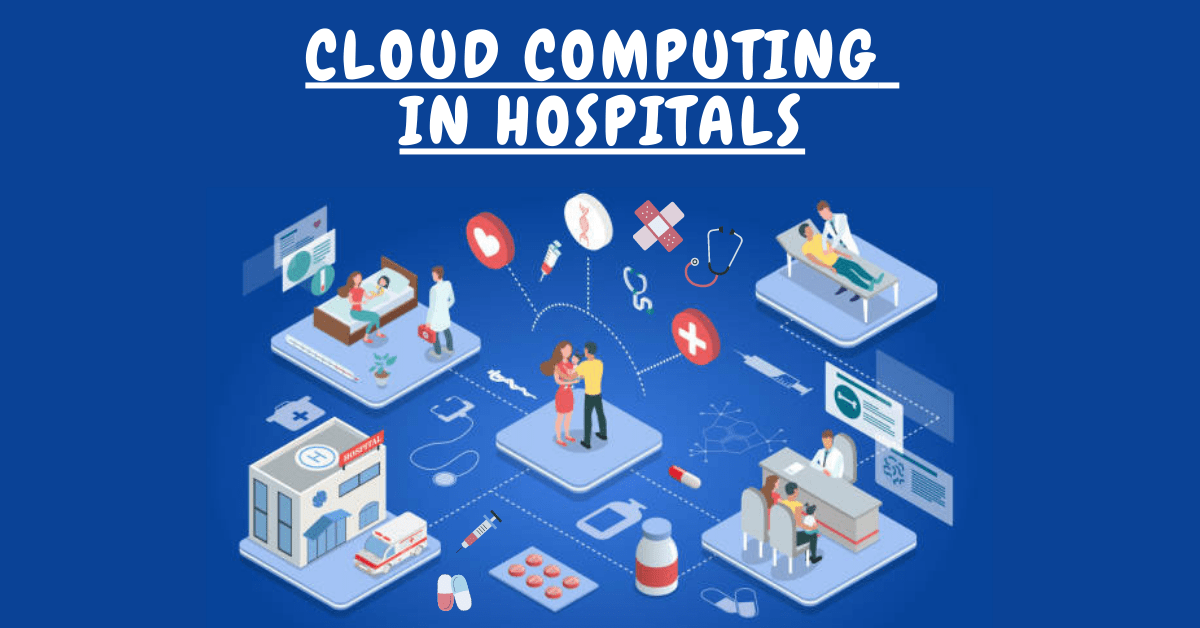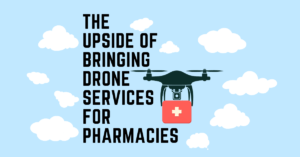The healthcare industry has come a long way in terms of optimizing its data management processes, from traditional storage to digitalization of healthcare data. It is all because of cloud computing. To fully understand the upside of cloud computing in hospitals, we need to understand initially what cloud computing is? So that we know the opportunities, as well as the number of services, surpass the number of hazards connected to it.
What is Cloud Computing?
Cloud computing is the delivery of computing services over the internet. Servers, storage, databases, networking, software, analytics, and intelligence are all part of cloud computing, which improves performance and provides more manageable resources as well as cost savings.
You only pay for the cloud services you use, which helps you cut costs, run your architecture more smoothly and scale as your business grows.
The cloud provides on-demand computing by using networked information, applications, and resources using cutting-edge technology. Operations can be made even more simple and cost-effective by implementing cloud computing in hospitals.
How the Cloud Benefits the Healthcare Providers
In today’s world, cloud computing in hospitals is continuously changing for the good of its services.
- Firstly, the cloud can provide hospitals with Software as a Service (SaaS) on-demand hosted services, allowing for quick access to business applications and fulfilling customer relationship management requirements (CRM).
- The cloud solutions, such as Infrastructure as a Service (IaaS), can provide on-demand processing and massive storage for hospital institutions.
- Lastly, the cloud Platform as a Service (PaaS) can provide a more secure environment for web-based services and the deployment of cloud applications.
Cloud computing is changing healthcare in far more ways than just providing hospital records from many computers anywhere, anytime, on any mobile device. It also connects healthcare facilities and cloud users to share patients’ health data through the Internet.
Transformation by Cloud Computing in Hospital Systems
In the medical industry, cloud computing is quickly becoming a necessity. It has the potential to transform the healthcare system by allowing healthcare professionals to share patient information in real-time for emergencies. There must be a strategy in place before complete transformation can occur.
Capabilities in E-Health
The cloud collects and calculates patients’ critical data from many sources. It also verifies that all necessary data is recorded and that no treatments are missed. Cloud computing and healthcare offer the ability to improve telemedicine, post-hospitalization care plans, and online drug tracking, among many other healthcare-related services. E-health improves access to healthcare services as well. E-medicine apps make healthcare delivery more convenient and also improve the patient experience.
Cost Reductions
The primary concept of cloud computing is the availability of computer resources such as data storage and computational power on demand. Hospitals and healthcare providers are no longer required to purchase hardware and servers entirely. There are no upfront costs connected with data storage in the cloud. You only pay for the services you use, resulting in meaningful cost savings.
Access to Advanced Analytics
The ability to access data from a distance is one of the most important advantages of the cloud. Medical research can benefit from Big Data analytics, and artificial intelligence is used to cloud-stored patient data. With the cloud’s advanced computational capabilities, processing large datasets becomes highly skilled.
Data Ownership by Patients
Cloud computing reduces the manual data and allows individuals to take care of their health. By acting as a tool for patient education and engagement, it increases patient participation in health-related decisions and leads to more informed decisions. When saving data in the cloud, patient information and medical imaging may be easily gathered and accessed. Although cloud security is still a problem, cloud data storage reliability is higher. Data backup is easier because the backups are automatic, and there is not a single touchpoint where the data is saved.
Closing Thoughts
The usage of cloud computing is expected to increase, the world’s population is rapidly growing. It will become extremely difficult for hospitals to maintain and administer on-premise data centers, conduct regular security assessments, and even maintain data security.
Khan explains “One reason is that all of the major companies, including Microsoft, Google, and Amazon, have quickly understood that on-premises data centers will no longer survive for many hospitals.
They’re adopting HIPAA (Health Insurance Portability and Accountability Act of 1996) and legal protection compliance controls in their data centers. It makes the job more manageable if we can acquire guarantees from the partners that they’re high-tech and HIPAA-certified. We don’t need to worry about infrastructure. And we don’t need a comprehensive security procedure to handle it.”




